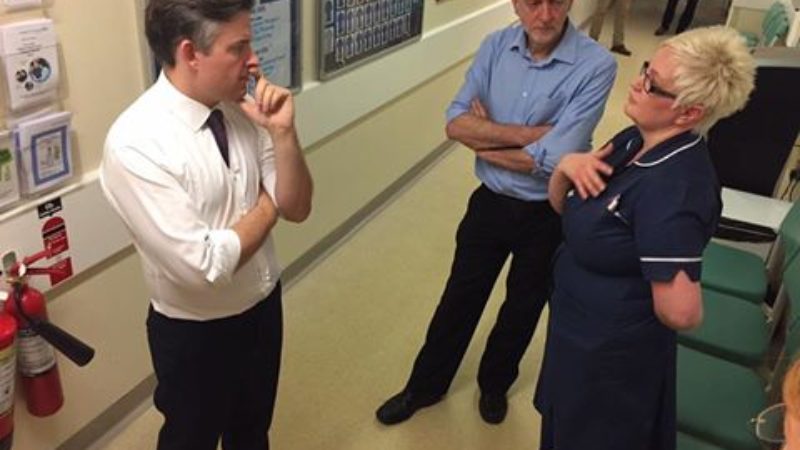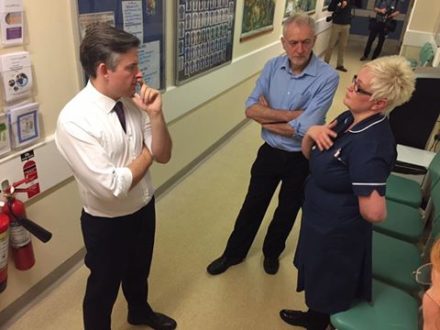

The triggering of article 50 starts a period of uncertainty in our NHS. The decision is momentous, but after seven years of neglect from successive Tory governments the prime minister and health secretary must finally give the NHS and patients the certainty needed through the Brexit process.
So far the complacency in government is astounding. Last week, Jeremy Hunt published the department of health’s “mandate to NHS England” to set “the government’s objectives and any requirements for NHS England”. Amazingly the 24 page document made no mention of Brexit whatsoever.
And during the prime minister’s statement yesterday confirming the triggering of article 50, she failed to mention the NHS even once. Neglecting our health and social care system during the most significant period of political and economic uncertainty in decades is completely unacceptable.
The prime minister has already turned her back on the clear promise of £350 million a week for our NHS, but perhaps it shouldn’t come as much of a surprise that the NHS isn’t taken seriously as a Brexit priority for the government. Indeed, the health secretary isn’t even a member of the relevant cabinet committees managing the exit strategy.
Later this week health bosses will publish the updated five year forward view. NHS chief executive, Simon Stevens, must ensure it includes the NHS’s plan for Brexit and not duck its responsibility to staff and patients.
After all, Britain’s health and social care system is dependent for its success on tens of thousands of European staff. Many of them have settled and built lives here while caring for our sick and elderly: safeguarding their futures should be an absolute priority in the Brexit negotiations.
So our first test of the government plans will be whether they deliver a right of remain for the 140,000 European Union nationals working in the NHS and social care system.
Secondly, on funding we know that the EU’s horizon 2020 scheme is due to invest £7.5 billion in health research across the EU over the next five years, and Britain will be by far the largest recipient of those funds. This long-term funding is crucial for our medical institutions and universities planning major research projects. So we need to know whether access to these funding streams will continue after Brexit, and if not, how does the government propose to make up the shortfall?
Our third test is on reciprocal healthcare arrangements. It is a key principle that British citizens can obtain free healthcare elsewhere in Europe, just as they would here at home from the NHS. Therefore, we want a guarantee that British citizens travelling and living abroad in Europe will continue to receive healthcare.
Finally, our fourth test is on EU healthcare collaboration. Effective joint working with our European partners has been vital for the NHS over recent years on everything from infectious disease control and the licensing, sale and regulation of medicines. The government must clarify whether the UK will continue to participate in the centralised marketing authorisation procedure for medicines governed by the European Medicines Agency. And how will Brexit will affect the UK pharmaceutical industry when exporting medicines to other member states in future?
These are of course difficult and complex questions to answer, but they are all of absolute importance to the future of our health service and of our medical research sectors.
The NHS is already in crisis over funding and staffing. But without a proper plan Brexit has the potential to tip those crises into unprecedented disasters. Patients and NHS staff should not be bargaining chips, and, at the very least, the public deserves clarify and certainty from the government.




More from LabourList
Lord Hayward: Disappointing May elections could decide Keir Starmer’s fate
LabourList Christmas quiz 2025 round 5: factions and unions picture round
LabourList Christmas quiz 2025 round 4: Christmas Connects